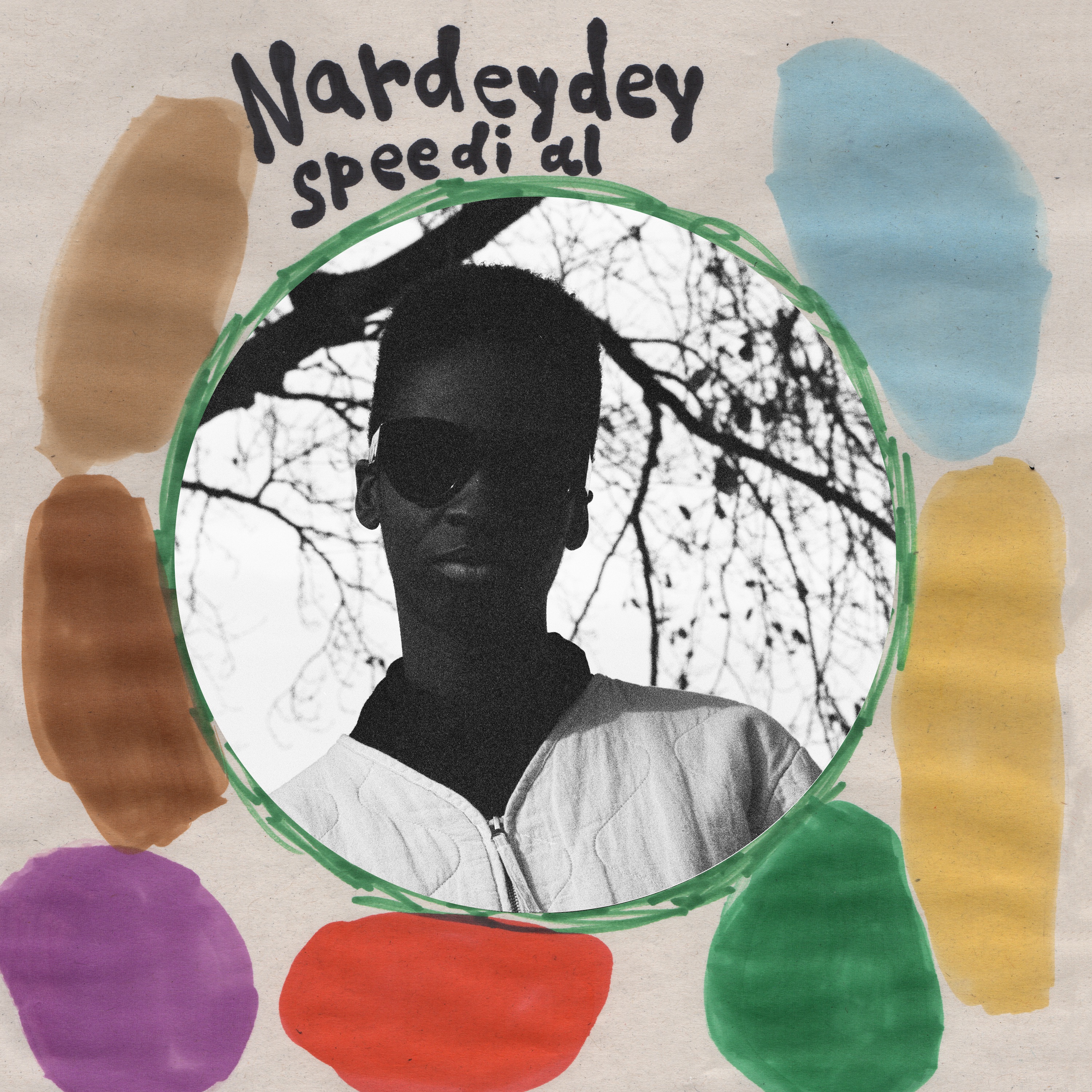Nardeydey: Speedial
From the opening bars of “Speedial” you can hear a unique musical intelligence that marks Nardeydey (aka Shirley Tetteh) as a special artist. The breezy melodic lines snake towards a yearning harmonic bridge with a narrative nod to Laurel Canyon, meanwhile, complex polyrhythms purr along in support, tickling the brain with their unusual complexity. “Speedial” is a song, using the metaphor of love and relationships, about feeling a bit stuck, “like the cliché of looking like a kid in the minds of others”, says Nardeydey, “and wishing life wasn’t so much work!”
Shirley was born in Hackney, London and grew up in various parts of North London with Ghanian parents. Her entry into music was falling in love with the guitar as a teen and being there at the very start of the recent blossoming of London’s new Jazz scene. She perfected her instrument jamming at London’s Tomorrow’s Warriors, an organisation that reached out to young people, especially of an Afro-Caribbean background, to nurture the next generation of British jazz . Outside of jazz guitar, she absorbed a rich mix of music from across the 20th century growing up, connecting deeply with iconic artists as broad-based as Joni Mitchell, Jimi Hendrix, D’Angelo, gospel singers like Fred Hammond, and fizzy 80s Italo synth poppers Cube, right up to contemporary ‘jazz adjacent’ artists like Thundercat and Kendrick Lamar.
Getting really good at guitar, she joined groups like Maisha, whose debut album will be released on Brownswood Records in November, and Gary Crosby’s Groundation, as well as co-founding the collective Nérija (now signed to Domino). She also joined Gilles Peterson’s All-Star band for the Worldwide Awards in 2016, playing for Little Simz and Anderson .Paak, and in 2017 played her first solo show as the support act for the revered ECM guitar legend Bill Frisell at his Jazz Café show.
Secretly though, she has started to write lyrical songs, of which “Speedial” is the first taste. “It was influenced by Ornette Coleman’s 1962 track ‘T&T”’ says Nardeydey “that features (American jazz drummer) Ed Blackwell playing a polyrhythm beautifully panned, with the left side emphasising those darker heavier kick & tom sounds. But I was also studying a Kurt Rosenwinkel chord melody arrangement of jazz standard ‘Body and Soul’, and I played round with one or two of the inversions and three-note chord groupings he used there and they made it into the song.”
We can be grateful for the result, a bitter-sweet exploration of desire’s multiplicity, across personal and emotional growth, physical relationships and beyond – pulling in its myriad influences to make a refreshingly unfamiliar pop.
